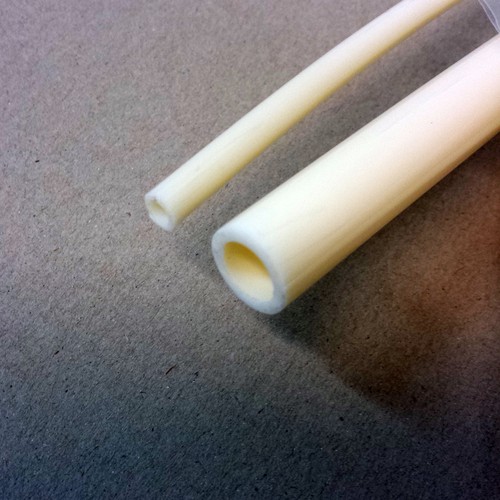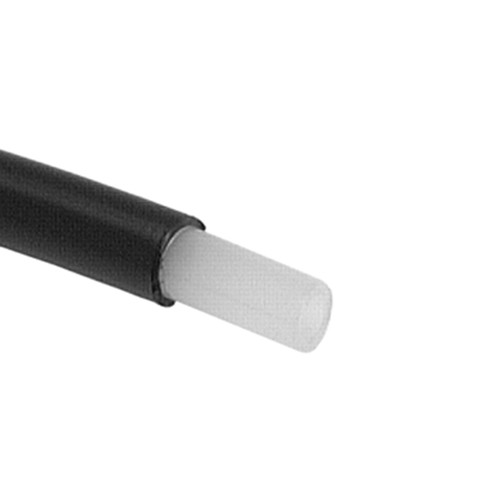Reichelt Chemietechnik offers you tubes made of thermoplastic elastomers in addition to tubes made of elastomers and duroplasts.
Duroplasts, also referred to as duromers, are plastics, which can no longer be deformed after curing. Duroplasts are hard, mostly glass-like, three-dimensionally cross-linked polymer materials. The available duroplasts of Reichelt Chemietechnik include, among others, PA, PE and PP, moreover fluoroplastics like PTFE or high performance plastics like PEEK.
Elastomers are dimensionally stable, yet elastically deformable plastics (based on natural or synthetic rubber) with a glass transition temperature (this is the temperature at which the elastomer begins to soften) that lies below the operation temperature. Elastomers can be elastically deformed through tensile and compressive stress but return to their original, undeformed state once stresses are released. Elastomer tubes of Reichelt Chemietechnik are available in 14 different elastomers including materials such as NR, CR, PUR, NR and silicone.
Thermoplastic elastomers (TPE) are so-called elastomer alloys, meaning physical mixtures (blends) of usually two different plastics. They are compounded in such a way that they behave like classic elastomers at room temperature. However, under the influence of heat they can be thermoplastically deformed and their achieved shape is fixed after cooling. This process is reversible, i.e. it can be repeated any number of times after the cooling process by reheating, unless the thermic decomposition (melting) of the material sets in due to excessive heating.
Another unique feature of the thermoplastic elastomers is their weldability not given by any other elastomer.
In order to type the different TPE qualities, an identification letter is attached to the abbreviated designation. Blends of thermoplastic polyester elastomers with thermoplastic copolyesters have the marking TPEE (also TPE-E) or the abbreviation TPC.
Reichelt Chemietechnik offers chemical tubes, composite tubes and tubes for the pharmaceutical and food processing industry made of this material in addition to the elastomer tubes. The tubes made of thermoplastic elastomers are easier to process, but feature a lower heat tolerance. All TPEE tubes are physiologically safe, feature very good mechanical strength properties, have excellent flexibility at room and low temperatures, and are resistant to most oils, fats and gasolines, aliphatic compounds and ozone.






